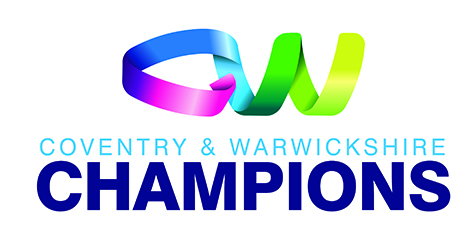
Daniel is a freelance game developer who set up his own business when he was just 20 years old. His games have been published across multiple studios and he currently creates for the Roblox platform - a game creation system that allows users to program games and play games created by other users.
Daniel was one of the inspiring young speakers at CW Champions Next Generation event at 1 Mill Street in Leamington Spa in February, which was aimed at young Coventry and Warwickshire professionals.
In this blog, Daniel reflects on his successful career and gives advice to other aspiring game developers.
I joined Roblox in 2011 at 8 years old and became passionate about game development as a result of playing all of the different games on the platform. It just came naturally and eventually I decided that I wanted to create my own games for a bit of fun.
Being a Roblox player and a gamer in general, prior to becoming a developer, was important because you come into game development knowing what works and what doesn’t. You understand what players are going to enjoy and what they might find annoying. I also am very selective before I start working on a project - the most important aspect is that I find the game fun to play, because if I don’t enjoy it as a developer, it’s unlikely that the player base will.
Whilst other games have come and gone, Roblox has remained constant as one of my favourites and I’ve never stopped playing it. This is because there’s always something new to enjoy on the platform - it never gets boring. I intend to continue developing on Roblox in the future because of everything it has given me, plus the fact that I see a lot of growth in the platform still to come.
Roblox has unlocked the potential of a generation of bedroom creatives. It allows young developers like me to build and deploy games to millions of players with little to no investment other than time and skills, and fosters a community that we can interact with.
I started learning how to code so that I could create better quality games. It took a lot of failed projects but eventually a few games became popular, and I started to earn money at 12 years old via in-game purchases which I was offering. Whilst these games were only making a very small amount of money at that point, it was enough to open my eyes to realise that if I worked hard and developed my skills in programming over the next few years, I could potentially turn it into a career.
I’ve heard that the gaming industry is indeed challenging to break into, and even for those that make it it can be a tough workload. In my case, I didn’t go into this expecting for it to turn into a career. It was merely a hobby that I would spend a couple of hours on a week after school or on the weekends for fun. If you have a passion for something, whether it is game development or anything else, especially creative, I think removing expectations is important because it means you’re not going to stress as much and instead lets your creativity flow. Over time, you’ll be able to gradually develop your skills and build a portfolio, which one day you could use to break into the industry. It’s also important to not throw all eggs into one basket; for me, I was still a student when I was learning to build games, which meant I had a second option if it didn’t work out or if I decided it wasn’t for me anymore.
Balancing creativity with the business aspects of game development is about finding a balance between what is currently popular and trending, with what you enjoy and take a creative interest in yourself. Whilst this is a struggle at times for developers, it’s definitely workable if you take a holistic approach to making a properly “good” game. I find that if you put a lot of effort and quality into your games, players tend to appreciate this and are happy to support you by purchasing products because its giving them repeated joy.
The main thing is to always ensure you’re enjoying what you’re doing. If you’re not enjoying it for some reason - perhaps you’re stressed over a specific project - it’s best to just take a step back and have a break to re-analyse and zoom out. As I mentioned earlier, creativity seems to just flow when you’re not worrying or stressing over things.
I can’t think of a sole biggest achievement but I’m just proud of how I continued to develop my craft and improve even after having some games which failed. It’s all a learning experience and when you have a game that does well, it feels like a huge achievement.
I want to mainly just continue enjoying what I do. This is the main thing for me. I’m not interested in chasing big numbers or growing into a massive company. I like to live in the day-to-day as much as I can, taking it all in, and just being grateful that everything has aligned to get me to where I am today.
I really enjoyed being a part of the Champions Next Generation event. I was inspired by the stories of the other panelists and it was a good opportunity to grow my network with so many of the other hardworking business owners from around the region, who I am sure that I can learn a lot from.
